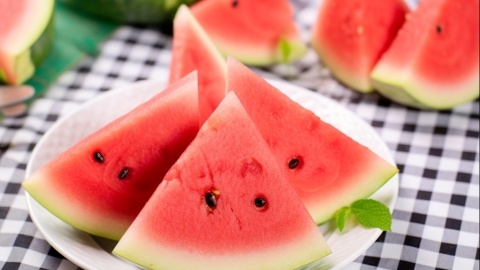Can watermelon seed shells be digested?
Under normal circumstances, the outer shell of watermelon seeds cannot be digested by the human body. The detailed explanation is as follows:

The outer shell of watermelon seeds mainly consists of protein, fatty acids, and dietary fiber, components that are not easily broken down by human digestive fluids. Additionally, the seed shell has a hard cuticle layer that serves as effective protection, preventing moisture and bacteria from entering the interior of the seed coat. The human digestive process mainly relies on enzymes in digestive fluids to break down food. Due to the compositional and structural characteristics of the watermelon seed shell, it cannot effectively react with enzymes in the digestive fluids, and therefore cannot be digested by the human body.
When watermelon seeds are swallowed, they enter the digestive system along with other food. Although the seed shells may be acted upon to some extent by gastric acid and digestive enzymes in the stomach, their overall structure remains relatively intact. Over time, the seeds will pass through the small intestine and large intestine with food residue and are eventually excreted from the body through feces.
Although the outer shell of watermelon seeds cannot be digested inside the human body, swallowing them usually does not cause serious harm in most cases. However, consuming large quantities of watermelon seeds may lead to discomfort such as intestinal blockage or constipation. Therefore, it is recommended to spit out the seeds while eating watermelon to avoid potential health risks.




